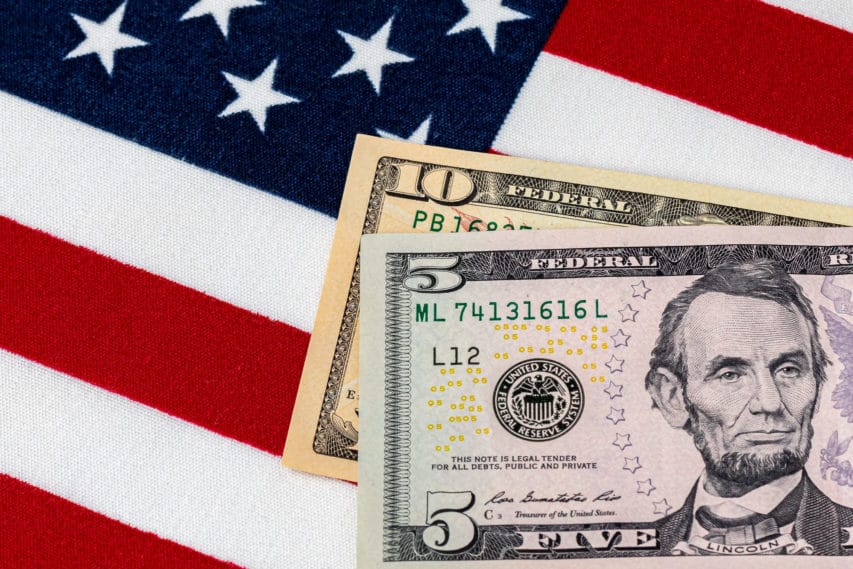Estimated reading time: 5 minutes
The federal minimum wage has been a hot-button issue for many years and has only been amplified by the recent pandemic’s effect on unemployment. The minimum wage has been stagnant since 2009, and proponents of increasing it argue that workers are long past due for a raise.
A $15 minimum wage is the new target point, but how would this impact small businesses?
A $15 Minimum Wage Could Lift Americans Out of Poverty – But at the Cost of Jobs
The greatest argument for raising the minimum wage is that the current rate isn’t enough to support even the bare minimum standard of living. Unfortunately, recent data shows that this argument is true. The current federal minimum wage of $7.25 per hour isn’t enough to afford rent anywhere in the United States. In fact, you would need to earn at least $20 an hour to afford a two-bedroom rental in many states.
Today’s federal minimum wage is 30% lower than what minimum wage workers were earning 53 years ago (adjusting for inflation). It has been more than a decade since the government has raised the federal minimum wage.
Raising the minimum wage to $15 per hour would increase the income of more than 32 million workers and lift nearly a million Americans out of poverty. In addition, the economy would benefit from more Americans having money to spend.
While increasing the minimum wage would undoubtedly benefit workers, it will likely come at a cost of 1.4 million jobs. Businesses like restaurants and others that rely on public gatherings and run on thin margins may struggle to keep their doors open.
Many small business owners are concerned that a higher minimum wage will force them to close or turn to automation to keep their operations up and running.
Small businesses make up more than 90% of employers. Increasing labor costs by 100% could be fatal for many of these businesses. While higher-paying jobs are certainly beneficial, it could mean that more workers are competing for fewer jobs.
A recent survey from CNBC found that minimum wage increases won’t kill small businesses. In fact, 57% of those surveyed said a minimum wage increase would not impact their business. In that survey, just 8% of small business owners said they would lay off workers if the minimum wage increased.
Happier Employees and Better Productivity
It’s no secret that well-paid employees are happy employees. Research shows that even a modest increase in minimum wage could boost productivity and reduce absenteeism and employee turnover.
Reducing employee turnover alone would benefit small businesses. According to the Society for Human Resource Management, the cost to replace an employee is 6 to 9 months of his/her salary. In addition, about 38% of employees quit because they feel their salary and benefits are inadequate. Raising the minimum wage, it would seem, addresses this issue and could easily improve employee satisfaction.
A higher minimum wage may mean a much lower turnover rate and a more productive staff. However, business owners may find that they don’t need to hire as many employees, leading to more job casualties.
Who Benefits from a Higher Minimum Wage?
One of the biggest misconceptions about raising the minimum wage is that it will only benefit college students and teens working part-time.
While it’s true that many minimum wage workers are young adults and teens, they only account for a small percentage of those who would benefit from a higher minimum wage. Many full-time adult workers earn more than the minimum wage, but less than $15 per hour.
Research from EPI shows that more than 50% of workers who would benefit from a higher minimum wage are between 25 and 54 years of age.
Other workers may also benefit from the raise. For example, those in higher positions may see a bump in their salaries simply because entry-level positions will pay more.
Yes, younger adults and teens will also benefit from a higher minimum wage, but younger workers will also have more disposable income to put into the economy. Alternatively, legislation could potentially address the issue.
Locality-Based Minimum Wage
Some people on both sides of the argument feel that a federal minimum wage isn’t the answer. Rather, pay minimums should be locality-based. In areas where the cost of living is especially low or high, $15/hour may not be warranted or may not be enough.
Someone living in San Diego, CA, for example, may not even notice or benefit from the higher minimum wage. However, a worker in Arkansas, where the cost of living is much lower, would benefit significantly from the minimum wage increase.
Locality-based minimum wage has received praise from both sides of the table. Taking a localized approach ensures that workers are being paid fairly based on living standards in their state or city. In addition, the U.S. is a diverse country, so why shouldn’t the minimum wage be equally diverse?
There are benefits and drawbacks to this approach, but it may not have as much of an impact on small businesses as a blanket minimum wage increase.
Minimum Wage Will Increase – It’s Only a Matter of Time
Regardless of your stance on the issue, at some point, the federal minimum wage will increase. Whether or not it will be $15 per hour remains to be seen, but small business owners should start preparing for such an increase.
Preparing for higher labor costs now will help ensure that your business can continue uninterrupted when things do change. Alternatively, if you can find ways to increase employee pay, you may find it worthwhile to increase wages now to reap the benefits of higher employee retention.
Employee compensation is a complex subject that has both economic and sociological impacts. For some small businesses, a $15 minimum wage may not impact their operations. For others, they may be forced to lay off employees, turn to automation or shut their doors.
Alternatively, small businesses can take the initiative to pay their employees more than the minimum – without having to worry about mandated increases – to attract better talent and improve employee satisfaction.





